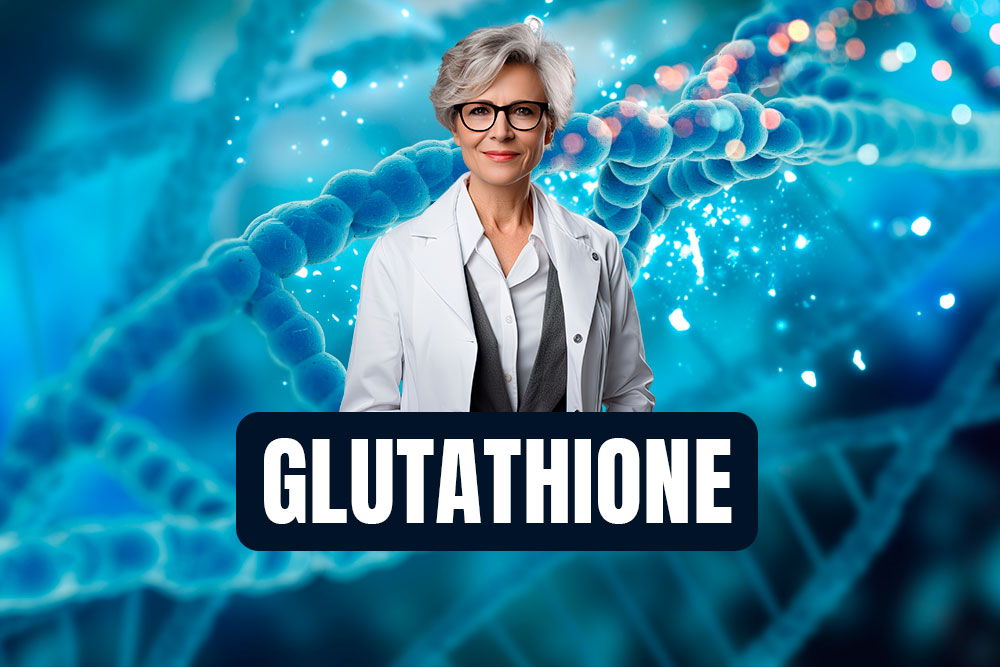

Scientifically Proven Liposomal Glutathione Benefits
Table of Contents
Liposomal Glutathione has been gaining popularity in the health industry as a potent supplement that comes with numerous benefits. It is an antioxidant that plays a crucial role in the detoxification of harmful toxins from the body.
More than just being an antioxidant, Liposomal Glutathione has been scientifically proven to provide several health benefits such as alleviating oxidative stress, managing insulin resistance, mitigating symptoms of Parkinson's disease, and much more.
In this blog, we will delve deeper into the science behind Liposomal Glutathione and explore its various health advantages.
What is Liposomal Glutathione?
Liposomal glutathione, a powerful antioxidant, offers numerous benefits for overall health. Its liposomal form enhances bioavailability, ensuring maximum absorption by the body. By promoting cellular function, liposomal glutathione plays a crucial role in maintaining optimal health.
Its role as a master antioxidant is backed by clinical trials and pilot studies, with promising results in various health conditions such as nonalcoholic fatty liver disease and autism spectrum disorders. With minimal side effects and proven effectiveness, liposomal glutathione is an excellent choice for oral supplementation.
The Difference Between Liposomal Glutathione vs Reduce Glutathione
The Science Behind Liposomal Glutathione
The Scientifically Proven Liposomal Glutathione Benefits
Alleviating Oxidative Stress
Liposomal glutathione supplementation has been shown to reduce levels of oxidative stress in the body. By neutralizing free radicals, liposomal glutathione acts as a powerful antioxidant, supporting overall health benefits. It combats oxidative damage to cells, improving their function and protecting against age-related decline.
Clinical trials and pilot studies have demonstrated the effectiveness of liposomal glutathione in alleviating oxidative stress and boosting glutathione levels. This is particularly important as low glutathione levels are associated with various health issues, including nonalcoholic fatty liver disease, immune system dysfunction, and autism spectrum disorders.
Potential Improvement in Psoriasis Conditions
Liposomal glutathione supplementation has the potential to alleviate symptoms of psoriasis, a chronic autoimmune skin condition. By supporting skin health and elasticity, liposomal glutathione benefits individuals with psoriasis by reducing inflammation and promoting healing. Additionally, liposomal glutathione has been found to have positive effects on rheumatoid arthritis, another autoimmune disorder commonly associated with psoriasis.
Protection against Cell Damage in Liver Diseases
Liposomal glutathione supplementation plays a crucial role in protecting liver cells from damage. Individuals with fatty liver disease can benefit greatly from liposomal glutathione, as it supports liver health by reducing oxidative stress. By improving liver function, liposomal glutathione supplementation helps to mitigate the effects of liver diseases.
Scientific research has shown the positive effects of oral glutathione supplementation on liver health. The role of glutathione as a master antioxidant cannot be understated, as it helps to neutralize free radicals and combat oxidative damage to cells. Overall, liposomal glutathione offers protection against cell damage in liver diseases.

Management of Insulin Resistance in Older Individuals
Liposomal glutathione supplements have been found to be beneficial in managing insulin resistance, particularly in older individuals. Studies suggest that liposomal glutathione supplementation may help improve insulin sensitivity and reduce insulin resistance. This is important as insulin resistance is a common issue among older individuals and can lead to various health complications, including metabolic disorders and diabetes.
Scientists at Baylor School of Medicine conducted research using both animal and human studies to investigate how glutathione influences weight control and insulin resistance in elderly individuals.
Boosting Mobility in Peripheral Artery Disease Patients
Liposomal glutathione supplementation has been shown to improve mobility in individuals with peripheral artery disease (PAD). By enhancing blood flow, liposomal glutathione benefits the overall mobility of patients. It aids in the management of PAD by reducing oxidative stress and supporting lower levels of oxidative stress.
Numerous clinical trials and pilot studies have demonstrated the positive effects of liposomal glutathione supplementation on mobility in PAD patients. With its role as a master antioxidant and its ability to support cellular health, liposomal glutathione offers a promising approach to improving mobility in individuals with peripheral artery disease.
Liposomal Glutathione and Neurological Health
Liposomal glutathione supplementation is known to benefit neurological health by supporting positive effects in Parkinson's disease and reducing oxidative damage in neurological disorders. It also plays a crucial role in improving cellular function, thereby enhancing brain health. One of the key benefits of liposomal glutathione is its ability to support glutathione levels, which in turn helps protect neurological function.
Clinical trials have shown promising results regarding the efficacy of liposomal glutathione in neurological health.
By providing essential amino acids and vitamins like vitamin C and E, liposomal glutathione offers immune support and aids in detoxification, making it a potential therapy for various neurological conditions.
Benefits to Children with Autism
Liposomal glutathione offers several benefits to children with autism. One of the key advantages is its ability to reduce oxidative stress in their bodies. This is crucial because children with autism often experience higher levels of oxidative stress, which can lead to inflammation and other health issues.
Additionally, liposomal glutathione plays a critical role in detoxification and immune function, both of which are compromised in children with autism.
By supplementing with liposomal glutathione, studies have shown improvements in behavior and cognitive function in children with autism.
How can Liposomal Glutathione Supplement Reduce Respiratory Disease Symptoms?
Liposomal Glutathione, as an antioxidant, may reduce oxidative stress in the body. Respiratory diseases are often associated with inflammation and oxidative stress. By reducing oxidative stress, liposomal glutathione has the potential to alleviate respiratory disease symptoms. Further research is needed to determine the exact mechanisms involved.
Let’s Sum Up
In conclusion, liposomal glutathione offers a range of scientifically proven health benefits. From alleviating oxidative stress to improving psoriasis conditions, protecting against cell damage in liver diseases, managing insulin resistance, and boosting mobility in peripheral artery disease patients, liposomal glutathione has shown promising results.
Consider incorporating liposomal glutathione into your daily routine for optimal results.


















